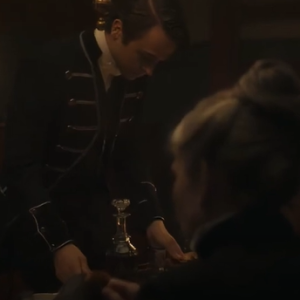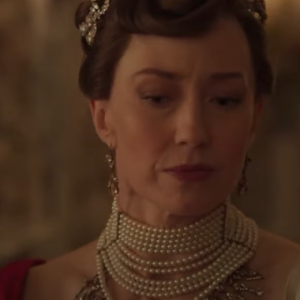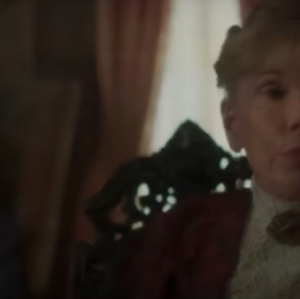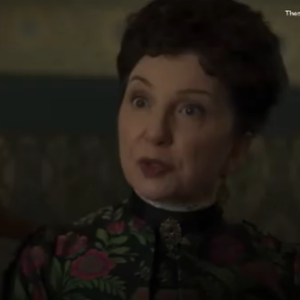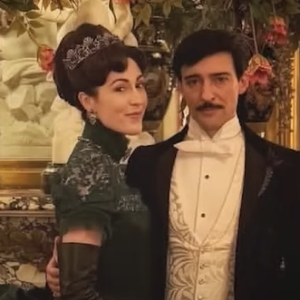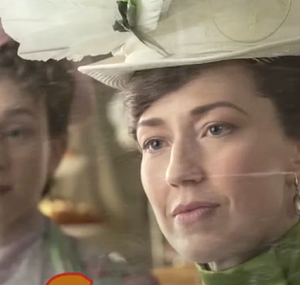The gilded glare of New York’s Gilded Age returns with a blaze of new ambitions, secret schemes, and romance that risks both fortune and family. After the season 3 finale left Bertha Russell at the peak of both power and peril, HBO’s lavish drama pivots toward a season 4 where every glamorous façade could crack under pressure. The question on everyone’s lips is not just who will ascend, but who will survive the social furnace of a city where alliances are currency and loyalties are as mutable as the weather in the Park Avenue mansions. The new chapter promises a volatile mix of high-stakes romance, political maneuvering, and the ever-present ache of a society that prizes appearances even as it gnaws at the souls of those who dare to overturn the old order.
Bertha’s arc remains the emotional core of the season, even as the cast expands into more dangerous territory. In season 4, Bertha’s triumph in the eyes of society—the marriage to George, the close alliance with Glattis, and the sense that she has finally earned her place among New York’s elite—now becomes the crucible that tests her resilience, her love, and her ambition. The finale’s jaw-dropping moment, when George confessed the possibility that his feelings for Bertha had shifted amid the intense personal and social pressures around them, sets up a destabilizing tension: can a woman who has built her status on shrewd calculation actually choose love over power when the price is a personal sacrifice that may ruin the happiness of their daughter? The show doesn’t shy away from moral ambiguity, and Bertha’s bid to reclaim George could push her toward softer, more vulnerable strategies—or plunge her into riskier gambits that threaten the reputation she’s fought so hard to secure.
A provocative rival emerges on the horizon: Mrs. Winterton, formerly a maid who ascended the social ladder with astonishing nerve and audacity. The buzz around her potential return to the social sphere as a formidable antagonist to Bertha promises fireworks. If Mrs. Winterton truly steps into the breach, the balance of power that Bertha spent seasons cultivating could tilt dramatically. The elder generation of New York’s high aristocracy has always thrived on subtle power plays—the quiet, devastating glances, the calculated social calls, the whispered judgments at ballrooms and dinner parties. A rival who knows the manual of social ascent as well as Bertha does would force the latter to redefine what it means to be queen of the town. This is not mere cat-and-mouse; it’s a test of who is willing to risk everything to secure a legacy that outlives the moment’s glitter.
Meanwhile, George Russell faces a storm of his own. The assassination attempt that punctuated season 3 is not a plot device to be shelved—it becomes a catalyst for a deeper, more perilous journey. George’s pursuit of truth may lead him into dangerous, perhaps deadly, territory. The man who has spent years navigating the narrow, gilded lanes of power must decide whether to chase the truth at all costs or to retreat to the safer margins where his standing is less fragile. The question of whether his relationship with Bertha can survive the heat of investigation and the risk of public scandal adds a new layer of drama: will George’s obsession with uncovering the assailant pull him away from the woman who has given him a second chance at happiness, or will it sharpen his focus on a shared future that could still be within reach?
Romance and weddings remain prominent, but with a more tempered tone. Dr. Kirkland and Peggy’s engagement—so bold and public in the finale—will now become a central thread as they navigate the friction between desire, duty, and the expectations of a society that can be both thrillingly progressive and utterly constraining. The mother-in-law’s disapproval and the father’s tacit blessing create a chessboard where small moves carry outsized consequences. Peggy’s happiness is not guaranteed by affection alone; it requires strategic patience, resilience, and a willingness to endure the jabs and snubs that come with marrying into a world where every gesture is interpreted as a political statement.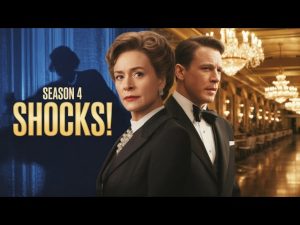
The arc of Jack and Bridget continues to offer a more humane texture amid the opulence and intrigue. Jack’s rise from footman to homeowner proclaimed the possibility of a decent, attainable future in a city that often chews up and spits out those who dare to dream too big. Season 4 promises a fulfilling crescendo for their relationship, with a proposal and impending wedding likely to be framed within the season’s most intense episodes of preparation, doubt, and familial pressure. Their romance stands as a counterpoint to the more ruthless power plays surrounding Bertha and George, reminding the audience that love can flourish even when the social soil around you is cracking apart.
And then there’s Oscar Van Ryne, whose trajectory hints at a darker, more dangerous kind of alliance. Following the devastating loss of John Adams, his alliance with Mrs. Winterton signals a shift toward a ruthless, self-protective calculus. This partnership—designed to protect Oscar’s secret and to extend Turner’s influence—could redefine the power dynamics at play in the city’s upper echelons. If Mrs. Winterton solidifies her position as a dangerous rival to Bertha, the season’s tension will crystallize into a duel of ambition—one that tests who will bend, or break, under the pressure of a city that loves spectacle but loathes weakness.
The return to the families that anchor the show—the Van Ryans—adds essential balance to the season’s emotional tempo. Agnes and Ada bring wit and heart to a narrative that could become relentlessly intense if not balanced by moments of lightness, humor, and genuine tenderness. Ada’s expanded role promises a sharper, more confident voice, likely to disrupt the status quo in the most charming and poignant ways. And Marian and Larry Russell’s journey toward marriage—historically a slow-burn romance—could become a beacon of hope amid the season’s many trials. If the wedding finally comes, it will be a testament to the series’ ability to weave joy into a tapestry of ambition, deceit, and longing, offering a much-needed respite before the finale’s emotional pounding.
In terms of pacing and structure, season 4 is poised to unfold with the same luxurious production values, but the storytelling will lean into the fragility of its character dynamics. With Bertha’s potential power struggle with Mrs. Winterton, George’s dangerous pursuit of truth, Peggy and Dr. Kirkland’s delicate negotiations between romance and public life, and the impending nuptials of several beloved couples, the season promises a mosaic of interlocking conflicts that keep the viewer glued to the screen. The set pieces—ballrooms, social salons, and the opulent private rooms where confidences are exchanged—will be as visually stunning as ever, but the true drama will emerge from the choices each character makes when confronted with a crossroads that could alter the course of their lives. 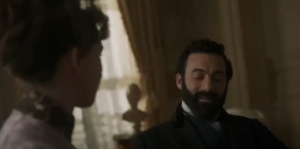
As the series looks ahead to the mysteries of season 4, the central question remains: who will be left standing when the dust of social upheaval settles? Will Bertha reclaim a place at George’s side, or will Mrs. Winterton pry open a vacancy at the crown? Will Larry and Marian seal their commitment, or will unforeseen betrayals force them to rethink everything they’ve built? And crucially, who shot George Russell? The audience knows the answer could come from any corner of a grand, opulent stage where every motive is disguise and every confession hides another twist. The next chapter of The Gilded Age promises to test loyalties, unearth new alliances, and remind us that in a world defined by luxury, the most valuable currency of all remains truth—even when it’s the hardest thing to bear.
